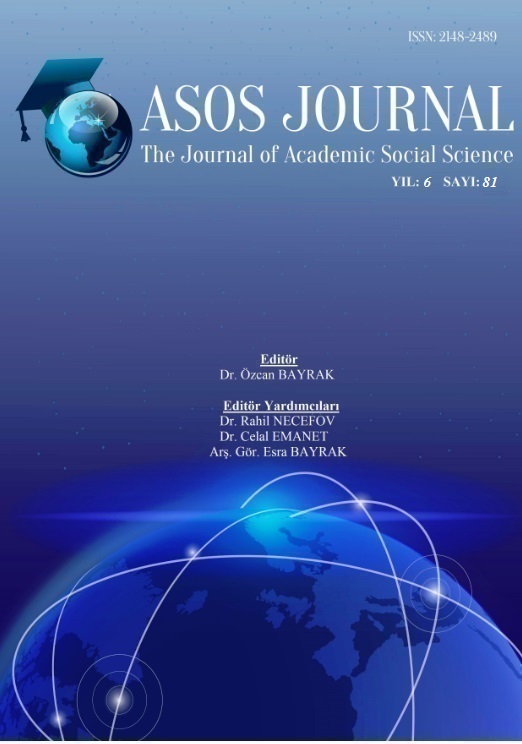Author :
Abstract
Kur’an’da dünya hayatı kavramı çok sık kullanılır ve genel olarak bu dünya karşısında öte dünyanın üstünlüğü vurgulanır. Buna bağlı olarak dünya haya-tının kendinde bir amaç olarak görülmesi eleştirilir. Buna göre dünya hayatı öte dünyadaki mutluluğa ulaşmak için gerekli araçsal değere sahiptir. Bu an-lamda Kur’an’da insanların dünyevi şeylerden yararlanmalarına izin verilir. Ancak dünyevileşme ve öte dünyacılık eğilimlerine izin verilmez. Seküler (dünyevi) anlayış, herhangi bir kutsal kaynak olmaksızın insanın kendi akli ve bilişsel yetileriyle salt bu dünyaya ait mutluluğu elde edebileceğini öne sürer-ken, Kur’an’da tasvir edilmiş olan dünya hayatı kavramı seküler anlayışa eleştirel yaklaşır. Çünkü bu dinsel bakışta dünya hayatının nihai amacı öte dünya-dır. Bu çalışmada ilkin, dünya hayatı ve öte dünya arasındaki ilişkiye dair Kur’an’daki görüş ele alınacak ve ardından dinde ortaya konulan dünya ve öte dünya algısı, felsefi bir bakış açısından değerlendirilecektir.
Keywords
Abstract
In the Qur’an the concept of ‘worldly life’ is used very often, and generally the supremacy of the other world is emphasized when compared to this world. And because of this, the worldly life’s being regarded as an aim in itself is cri-ticized there. According to this, worldly life, in order to get happiness in the other world, has necessary instrumental value. In this sense, in the Qur’an it is allowed for the believers to benefit from the worldly goods. However, secula-rism and other worldistic tendencies are not allowed there. While the secular view puts forward that humans can get happiness in this world by using their mental and cognitive abilities without any holy source, the concept of worldly life described in the Qur’an finds the understanding of secular view judge-mental. Because according to this religious point of view, the ultimate aim of worldly life is the other world. In this study, as a first step the religious point of view of the Qur’an about the relations of worldly life and the other world will be discussed and as a second step the conceptions of this world and the other world which are established in the religion will be evaulated from a phi-losophical point of view.





